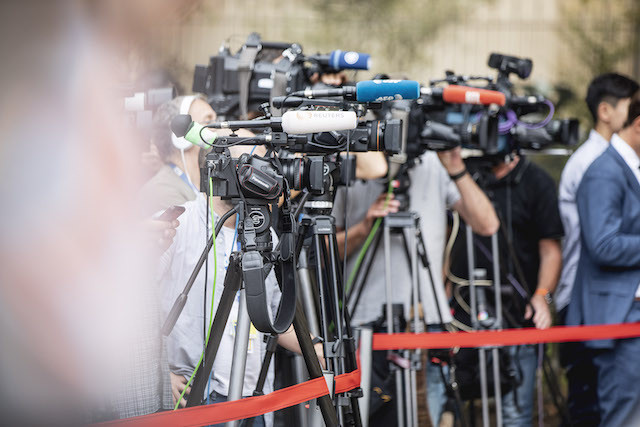Poor transparency, newsroom cutbacks and a decline in advertising revenue were among the challenges facing journalists in 2020 and which led to the declining ranking.
Compiled by not-for-profit Reporters Without Borders, the 2021 report pointed out that while the search for information about the pandemic drove an increase in the consumption of online news, business closures created “financial tension in some media outlets.”
During the first weeks of the pandemic, “journalists often struggled to get state statistical agencies to provide relevant figures and information about the spread of the virus and how it was being managed politically.”
The report explained that “relative transparency was gradually established although a lack of resources resulted in frequent bottlenecks in the flow of information. It was only by chance that some of the expert reports used by the government were published.”
During this difficult year, some publishers tightened their belts more than others.
Shortly after Belgian media giant Mediahuis bought the Saint-Paul group, which publishes the Luxemburger Wort, the firm axed 20% of staff, equivalent to 70 employees. During the same year, the Lëtzebuerger Journal scrapped its print edition, moving all content online.
The government provided some financial aid to media and is still drawing up its next press aid law, which will be based on the number of journalists employed rather than pages printed, as was previously the case. A second piece of legislation will broaden the scope of national broadcaster Radio 100,7, from social and cultural content, to become a general content station.
On a positive note, a group of journalists won a legal battle with the government over its refusal to hand over an audio recording of a governmental meeting at which journalists were defamed. The country’s supreme court ruled that the government was violating both the journalists’ rights and the public’s right to know. The report read: “This set a very important precedent, giving journalists right of access to all non-classified information. State agencies nonetheless still tend to refuse to provide information to journalists.”
Vice president of Luxembourg journalists union the ALJP Luc Caregari told Delano on Tuesday that the year had shown the need to enshrine the right to access information in law “because the pandemic has proved that Luxembourg lacks transparency and and information culture. The press conferences have been more like theatre plays than places where you can get information, we had to push with the press council and journalist association to get the minimum of information needed.”
As an example, he cited resistance from the government to publish the names of members of the covid-19 taskforce. He said: “A crisis is there to strip reality and to see naked how it is, and we’ve seen more than we wanted of this lack of transparency.”
Hear more from this interview in the next Delano Newsmakers Podcast, out on 22 April.
